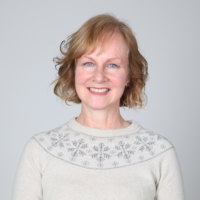
Television Drama: Archives, Access and Research – Weds 22nd Feb 2017, BFI
On 22nd Feb, I was lucky enough to attend the Archives, Access and Research conference at the BFI. This event was part of Royal Holloway’s ‘Forgotten Drama’, AHRC research project, run by Prof John Hill.
It was an unusual and civilised schedule, consisting of three panels of 5 or 6 speakers, so there were no power-points, and lots of discussion- both of which are good things!
Panel 1: Access

The highlight of this session, and in fact of the whole conference, was writer John Wyver’s impassioned plea for wider access to the BBC’s television archives. His provocation took the form of an analogy – that a ‘library’ of publicly funded books, containing knowledge and riches accumulated over 70 years, which had been freely available to anyone to read for one hour, were then locked away from the very people who had funded them. He made the point passionately that nobody in positions of power cares anywhere near enough about making the BBC archive accessible. He acknowledged the challenges of rights, privacy, funding and technology, and whilst he agreed that small steps had been made in the right direction, he knew that much more was possible, if the right people cared enough.
The other panel members were all on the other side of the archival fence – either managing, curating, or advising the archives. They were all trying to make the archives more accessible, and had brought in various initiatives to do this, (such as the BBC Genome project which digitised the Radio Times and made is openly available) – but these ‘small steps’ did not equate to the fundamental change in access that John Wyver was advocating. We heard from Dale Grayson from ITV; Gabriele Popp, Head of Collections at the BFI; Sue Malden, an archive consultant; and Jake Berger, Product Manager in the BBC Archives.
Rights issues were stated as ‘the elephant in the room’: the thing that blocks increased archival access more than any of the other challenges.
The panel concluded that the next important step was to create a record of what has actually been broadcast on different channels over the last 70-80 years: that the different data sets from the different organisations needed to be joined up.
Panel 2: Availability & Exhibition

The second panel focussed on the privileged position of academia, in terms of being able to access the archive. It highlighted the work of ERA (Educational Recording Agency), and the licensing system which provides a copyright exception for non-commercial access for research and education. We also heard from Learning on Screen (previously the BUFVC) about TRLT (Television and Radio for Learning and Teaching), and the platform BoB (Box of Broadcasts), which means that academics can record, keep and share many contemporary programmes, enabled by the ERA licence.
Prof John Ellis from Royal Holloway, spoke of how copyright was the wrong way round from his perspective: that it should be be up to rights holders to assert their rights, rather than the emphasis being on publishers to discover who the rights holders are. He also talked about the important work of EU Screen.
We heard from Tim Beddows of Network Distributing, who commercially restores and releases a lot of archive material, particularly from the ITV catalogue, and Dick Fiddy, mentioned the very successful work of the group ‘Missing, believed wiped’, in acting as a clearing house for found copies of lost programmes. The commercial work of BBC Store in making some archive BBC programmes available for download was also discussed. Simon Farquhar mentioned the success of theming their releases, such as the 2016 release of ‘Prejudice and Pride’, which included dramas such as The Other Woman. The next BBC Store release, ‘Race through the decades’, will be in March 2017.
Panel 3: Research, Education & Use

The third panel developed the ideas from the previous panels, and talked about how working with academic researchers was one of the best ways of opening up the archive. The discussion centred on databases, and the need to integrate those from different organisations, particularly through using linked data standards. Automatically collected metadata was also mentioned and the opportunities of using big data to analyse and understand television as a cultural object: for instance a researcher could use automatically collected data on shot lengths etc. There was a tension between approaches involving pure data, against those of actually watching the archival texts, which John Ellis described as complementary activities.
To conclude, Prof John Hill brought the conference themes together:
- To develop a better knowledge of the sources already out there
- To argue for rights of access
- To meet up more often, and share more
- To educate ourselves about linked data and open data
- To find cross sector funding
- To develop partnerships between academics and organisations
Launch of the ‘Centre for the History of Television Culture and Production’

John Ellis, James Bennett, John Hill
Following the conference, was the launch of Royal Holloway’s new ‘Centre for the History of Television Culture and Production’. The research centre aims to:
- Capture and record TV history before it disappears
- Understand how programmes have been made
- Analyse the programmes which have been produced
- Rediscover neglected works and practices
- Examine the strategic, regulatory and cultural imperatives that inform television production
The centre directors are: James Bennett, John Ellis and John Hill.
This was a well attended launch, with stalwarts like Tony Garnett, Charlotte Brunsden and Christine Geraghty raising a glass of wine to the new Centre.
